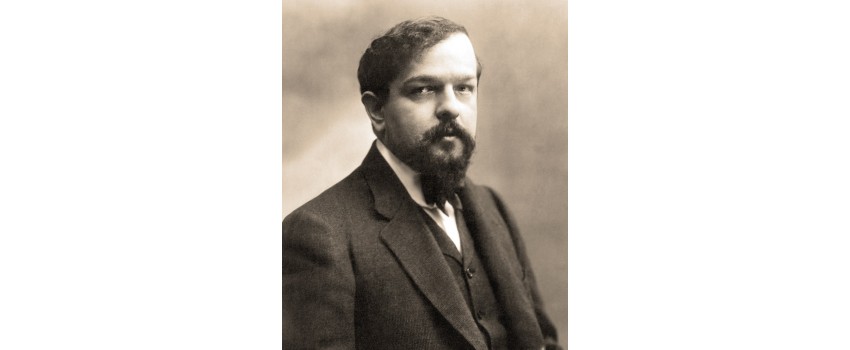Debussy, Clair de Lune for Violin and Piano (EB)
Claude Debussy, Clar de Lune for Violin and Piano. Edited by Tomislav Butorac.
Claude Debussy, born on August 22, 1862, in France, was an influential composer known for his innovative musical style and unique approach to harmony and orchestration. Despite his humble background, Debussy's exceptional musical talent led him to the prestigious Conservatoire de Paris at the age of eleven. Throughout his career, he challenged the conventions of classical music and became one of the pioneers of the Impressionist movement, although he resisted being labeled as such.
Early Life and Musical Education
Debussy was born into a modest family with little cultural exposure. However, his musical abilities became evident at a young age, leading him to be accepted into the renowned Conservatoire de Paris. Despite the conservatoire's preference for conservative academics, Debussy found his true passion in innovative composition. It took him several years to develop his mature style, and it wasn't until the age of 40 that he gained international recognition with his opera, Pelleas et Melisande, in 1902.
Revolutionary Works
Debussy's compositions were a departure from the traditional German musical tradition of the time, particularly influenced by Richard Wagner. His orchestral works, such as "Prelude a l'apres-midi d'un faune" (1894), "Nocturnes" (1897-1899), and "Images" (1905-1912), showcased his distinct harmonic language and innovative use of color in music. His goal was to create an alternative to the classical symphony, as demonstrated in his symphonic sketches, "La Mer" (1903-1905).
Keyboard Works and Poetic Melodies
In addition to his orchestral compositions, Debussy made significant contributions to keyboard music. His sets of 24 Preludes and 12 Études showcased his mastery of the piano and his ability to evoke various moods and atmospheres. Throughout his career, Debussy also composed melodies based on a wide range of poetry, including his own. His music was heavily influenced by the Symbolist lyrical movement of the late nineteenth century.
Choral Works and Chamber Music
While Debussy's focus was primarily on orchestral and keyboard compositions, he also ventured into choral music. Pieces such as "La Damoiselle elue" and "Le Martyre de Saint Sebastien" incorporated significant chorus parts, showcasing his versatility as a composer. Later in his career, Debussy turned his attention to chamber music, completing three of the six intended sonatas for various instrument combinations.
Debussy's Musical Legacy
Debussy's innovative approach to harmony and orchestration was met with resistance by the musical establishment of his time. However, his influence extended far beyond his contemporaries. Composers such as Bela Bartok, Olivier Messiaen, George Benjamin, and even jazz pianist and composer Bill Evans were inspired by Debussy's groundbreaking work. His unique musical language paved the way for new directions in music, leaving a lasting impact on future generations.
The Final Years and Legacy
After more than three decades of composing, Debussy's life was tragically cut short by cancer at the age of 55. His legacy, however, lives on through his extensive body of work. While some contemporary critics initially underrated his late compositions, many now recognize their brilliance. Debussy's most well-known music is often from his middle years, but his entire oeuvre continues to captivate audiences worldwide.
Cataloging Debussy's Works
Debussy did not assign opus numbers to his compositions, with the exception of his String Quartet, Op. 10 in G minor. Instead, François Lesure, a musicologist, cataloged and indexed his works in 1977, providing a comprehensive overview of his compositions. The Lesure numbers are sometimes used as a suffix to the titles of Debussy's works in concert programs and recordings.
Conclusion
Claude Debussy's contributions to the world of music cannot be overstated. His innovative compositions challenged the norms of the time and laid the foundation for future generations of composers. From his orchestral works to his keyboard compositions and choral pieces, Debussy's music continues to inspire and captivate audiences around the world. His unique harmonies, inventive orchestration, and poetic melodies have secured his place as one of the most influential composers of the late 19th and early 20th centuries.

Claude Debussy, Clar de Lune for Violin and Piano. Edited by Tomislav Butorac.